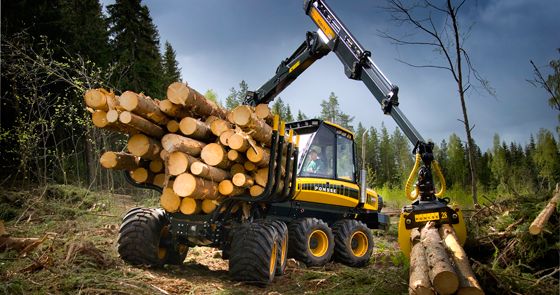
A wide range of forest safety experts are making positive change in New Zealand’s forestry workplace, using peoples’ minds to bring safety culture change to their work situations and combining that with technology to make their job safer. Sources: Scoop, Timberbiz
Workers and safety champions in the forest industry around the New Zealand have been working hard to improve safety in the workplace.
Workers have responded with enthusiasm to help re-write safety rules to keep everyone aware of risks and how to minimize them.
With workplace safety improvements getting harder to make since the 2013 crisis, forest industry safety leaders are looking to new techniques. Industry leaders say growing safety culture among workers is proving to be valuable for gains in both safety and productivity at the same time.
Another area where productivity can grow at the same time as safety is with technology and mechanisation.
Over NZ$80 million of investment in new steep slope harvester technology has been brought into forests up and down the country in the past three years.
Safety in tree harvesting has dramatically improved with machines taking over much of the harvesting on steeper slopes. Now a new stage has been reached and industry people are coming together to make another paradigm shift in workplace safety.
The FIEA Forest Industry Safety Summit conference series coming in March 2017 has a proven list of presenters from both the safety culture growth area and technology for safety in outdoor workplaces.
These two solutions are keys to offering simple and practical solutions to people working closely together in forest harvesting operations.
“We’ve got really inspiring and practical speakers who have delivered real change for their companies and clients – the case studies they have are proven to bring results,” says conference organizer John Stulen.
“Our sessions and speakers are focused on all workplace roles, on people making real culture change and technologies to make change easier. Often it’s a combination of engaging peoples’ minds and providing seamless safety tools, so we’ve got a bit of both in our presentations,” Mr Stulen said.
“We’ve also got safety leaders bringing their experience of learning reviews in the high-voltage electrical industry and civil engineering fields as their people are working in similar conditions – outdoors with uncontrollable weather conditions. There are a lot of similarities with people in forestry workplaces.”
Safety summit principal partners include McFall Fuel in New Zealand and VicForests in Australia. Both are recognised as early adopters of positive safety practices.
This conference series sold out in 2013 and 2015, and is running in March 2017 in Rotorua and Melbourne. For more information visit www.fiea.nz





